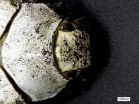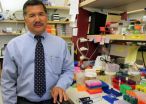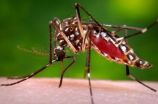(Press-News.org) Washington, DC (August 12, 2014) – Determining deception is a tool of the trade for law enforcement. The Good Cop/Bad Cop routine is etched in our minds as an effective method of finding out the truth. But prior research has shown that lie detecting is a 50/50 shot for experts and non-experts alike. So what exactly can we do to find out the truth? A recent study published in Human Communication Research by researchers at Korea University, Michigan State University, and Texas State University - San Marcos found that using active questioning of individuals yielded near-perfect results, 97.8%, in detecting deception.
Timothy Levine, Hee Sun Park (University of Korea), David Daniel Clare, Steve McCornack, Kelly Morrison (Michigan State University), and J.Pete Blair (Texas State - San Marcos) published their findings in the journal Human Communication Research. The researchers conducted three studies based on sets of participants who were asked to play a trivia game. Unbeknownst to the participants, a confederate was placed with them offering an incentive and opportunity to cheat at the game, since cash prizes were involved. In the first experiment 12% of the subjects cheated; in the second experiment 44.9% cheated.
An expert using the Reid Technique interrogated participants in the first study, this expert was 100% accurate (33 of 33) in determining who had cheated and who had not. That kind of accuracy has 100 million to one odds. The second group of participants were then interviewed by five US federal agents with substantial polygraph and interrogation expertise. Using a more flexible and free approach (interviews lasted from three minutes to 17 minutes), these experts were able to accurately detect whether or not a participant cheated in 87 of 89 interviews (97.8%). In the third study, non-experts were shown taped interrogations of the experts from the previous two experiments. These non-experts were able to determine deception at a greater-than-chance rate – 79.1% (experiment 1), and 93.6% (experiment 2).
Previous studies with "experts" usually used passive deception detection where they watched videotapes. In the few studies where experts were allowed to question potential liars, either they had to follow questions scripted by researchers (this study had no scripts) or confession seeking was precluded. Previous studies found that accuracy was near chance - just above 50%.
"This research suggests that effective questioning is critical to deception detection," Levine said. "Asking bad questions can actually make people worse than chance at lie detection, and you can make honest people appear guilty. But, fairly minor changes in the questions can really improve accuracy, even in brief interviews. This has huge implications for intelligence and law enforcement."
Levine's findings have led him to develop a new theory, Truth Default Theory. Levine's idea is that when humans communicate with other humans, they tend to operate on a default presumption that what the other person says is basically honest.
"The presumption of honesty is highly adaptive. It enables efficient communication, and this presumption of honesty makes sense because most communication is honest most of the time. However, the presumption of honesty makes humans vulnerable to occasional deceit" Levine said. "There are, of course, times and situations when people abandon this presumption of honesty, and the theory describes when people are expected to suspect a lie or conclude that a lies was told, and the conditions under which people make truth and lie judgments correctly and incorrectly."
INFORMATION:
"Expertise in Deception Detection Involves Actively Prompting Diagnostic Information Rather Than Passive Behavioral Observation," by Timothy Roland Levine, David Daniel Clare, J. Pete Blair, Steve McCornack, Kelly Morrison and Hee Sun Park; Human Communication Research
Contact: To schedule an interview with the author or a copy of the research, please contact John Paul Gutierrez, jpgutierrez@icahdq.org.
About ICA
The International Communication Association is an academic association for scholars interested in the study, teaching, and application of all aspects of human and mediated communication. With more than 4,300 members in 80 countries, ICA includes 27 Divisions and Interest Groups and publishes the Communication Yearbook and five major, peer-reviewed journals: Journal of Communication, Communication Theory, Human Communication Research, Communication, Culture & Critique, and the Journal of Computer-Mediated Communication. For more information, visit http://www.icahdq.org.
Experts close to perfect in determining truth in interrogations using active question methods
Non-experts have high rates of success of lie detection when viewing experts work
2014-08-15
ELSE PRESS RELEASES FROM THIS DATE:
The beetle's white album
2014-08-15
The physical properties of the ultra-white scales on certain species of beetle could be used to make whiter paper, plastics and paints, while using far less material than is used in current manufacturing methods.
The Cyphochilus beetle, which is native to South-East Asia, is whiter than paper, thanks to ultra-thin scales which cover its body. A new investigation of the optical properties of these scales has shown that they are able to scatter light more efficiently than any other biological tissue known, which is how they are able to achieve such a bright whiteness. ...
Personal, public costs of scientific misconduct calculated
2014-08-15
Much has been assumed about the private and public damage of scientific misconduct. Yet few have tried to measure the costs to perpetrators and to society.
A recent study calculated some of the career impacts, as well as federal funding wasted, when biomedical research papers are retracted. The results appear in the Aug. 15 issue of the journal eLife.
In questioning common assumptions, the study authors determined that scientific misconduct typically, but not always, exacts a personal toll in derailing careers. On the public side, the cost to federal funding sources ...
Previous pulmonary disease linked to increased lung cancer risk in large study
2014-08-15
Links between a number of common respiratory diseases and an increased risk of developing lung cancer have been found in a large pooled analysis of seven studies involving more than 25,000 individuals.
"Associations between various respiratory diseases and lung cancer have been shown in earlier studies, but few of these studies considered multiple respiratory diseases simultaneously," said researcher Ann Olsson, PhD, of the International Agency for Research in Cancer in Lyon, France. "In our pooled analysis of seven case-control studies involving more than 12,500 cases ...
Human milk fat improves growth in premature infants
2014-08-15
HOUSTON – (August 15, 2014) – For premature infants, adequate growth while in the neonatal intensive care unit is an indicator of better long-term health and developmental outcomes. Researchers at the USDA/ARS Children's Nutrition Research Center at Baylor College of Medicine and Texas Children's Hospital have now successfully incorporated a cream supplement into premature infants' diets that improved their growth outcomes in the NICU. The report appears today in the Journal of Pediatrics.
"For premature babies who weigh less than 1,000 grams (about 2 pounds, 2 ounces), ...
Woodrats' genes help them to win the arms race against their food
2014-08-15
A handful of genes arm the woodrat against the toxic chemicals in its foodstuff, the creosote plant, according to research published in the open access journal BMC Ecology.
It's long been a mystery exactly how the woodrat developed the ability to handle the chemicals in the creosote plant, which are toxic to other rodents. Previous research has suggested that they are protected by factors such as gut bacteria. But the new study identifies the genes switched on in two species of woodrat with resistance to the plant poisons, showing that the genes that they are born with ...
Experimental chikungunya vaccine induces robust antibody response
2014-08-15
An experimental vaccine to prevent the mosquito-borne viral illness chikungunya elicited neutralizing antibodies in all 25 adult volunteers who participated in a recent early-stage clinical trial conducted by researchers at the National Institute of Allergy and Infectious Diseases (NIAID), part of the National Institutes of Health. The results are reported in the current issue of The Lancet.
The most distinctive symptom of chikungunya infection is severe joint pain accompanied by headache and fever. There are currently no vaccines or specific drug treatments for chikungunya. ...
The Lancet: European Society of Cardiology Congress media alert
2014-08-15
The Lancet is pleased to announce that the following papers will be published ahead of the European Society of Cardiology Congress 2014, taking place in Barcelona, Spain, from 30 August to 3 September 2014. This includes a special Series of three papers on lipids and cardiovascular disease.
Blood pressure-lowering treatment based on cardiovascular risk: a meta-analysis of individual patient data by Dr Johan Sundström et al
This study investigated whether the success of blood pressure-lowering drugs is dependent on baseline cardiovascular risk, and whether this could ...
The Lancet: virus-like particle vaccine shows promise against chikungunya
2014-08-15
The first human trial of a new vaccine developed using non-infectious virus-like particles (VLP) appears likely to offer protection against chikungunya virus, a mosquito-borne infection, according to a study published in The Lancet. Since its re-emergence in 2004, chikungunya virus has become a growing public-health threat that has affected millions of people in Africa, Asia, and Europe, and in recent months it has been spreading throughout the Americas.
"Chikungunya virus has adapted itself to be transmitted by not only the Aedes aegypti mosquito that lives mainly in ...
Gender disparities uncovered in desire to receive living donor kidney transplants
2014-08-15
Washington, DC (August 14, 2014) — Among black kidney failure patients undergoing dialysis, women are much less likely than men to want to receive kidney transplants from living donors, despite more offers from family and friends. The findings, which are from a study appearing in an upcoming issue of the Clinical Journal of the American Society of Nephrology (CJASN), suggest that interventions are needed to increase women's acceptance of living donor kidney transplantation.
Living donor kidney transplantation is the treatment of choice for patients with kidney failure, ...
Make your mobile device live up to its true potential -- as a data collection tool
2014-08-15
Leaf measurements are often critical in plant physiological and ecological studies, but traditional methods have been time consuming and sometimes destructive to plant samples. Researchers at the University of California, Davis, have developed Easy Leaf Area—a free software written in an open-source programming language—to allow users to accurately measure leaf area from digital images in seconds.
"It has always been a challenge to measure leaf surface area without damaging the plants or spending long hours in the lab, so I decided to attempt to write software to automatically ...
LAST 30 PRESS RELEASES:
Alkali cation effects in electrochemical carbon dioxide reduction
Test platforms for charging wireless cars now fit on a bench
$3 million NIH grant funds national study of Medicare Advantage’s benefit expansion into social supports
Amplified Sciences achieves CAP accreditation for cutting-edge diagnostic lab
Fred Hutch announces 12 recipients of the annual Harold M. Weintraub Graduate Student Award
Native forest litter helps rebuild soil life in post-mining landscapes
Mountain soils in arid regions may emit more greenhouse gas as climate shifts, new study finds
Pairing biochar with other soil amendments could unlock stronger gains in soil health
Why do we get a skip in our step when we’re happy? Thank dopamine
UC Irvine scientists uncover cellular mechanism behind muscle repair
Platform to map living brain noninvasively takes next big step
Stress-testing the Cascadia Subduction Zone reveals variability that could impact how earthquakes spread
We may be underestimating the true carbon cost of northern wildfires
Blood test predicts which bladder cancer patients may safely skip surgery
Kennesaw State's Vijay Anand honored as National Academy of Inventors Senior Member
Recovery from whaling reveals the role of age in Humpback reproduction
Can the canny tick help prevent disease like MS and cancer?
Newcomer children show lower rates of emergency department use for non‑urgent conditions, study finds
Cognitive and neuropsychiatric function in former American football players
From trash to climate tech: rubber gloves find new life as carbon capturers materials
A step towards needed treatments for hantaviruses in new molecular map
Boys are more motivated, while girls are more compassionate?
Study identifies opposing roles for IL6 and IL6R in long-term mortality
AI accurately spots medical disorder from privacy-conscious hand images
Transient Pauli blocking for broadband ultrafast optical switching
Political polarization can spur CO2 emissions, stymie climate action
Researchers develop new strategy for improving inverted perovskite solar cells
Yes! The role of YAP and CTGF as potential therapeutic targets for preventing severe liver disease
Pancreatic cancer may begin hiding from the immune system earlier than we thought
Robotic wing inspired by nature delivers leap in underwater stability
[Press-News.org] Experts close to perfect in determining truth in interrogations using active question methodsNon-experts have high rates of success of lie detection when viewing experts work


